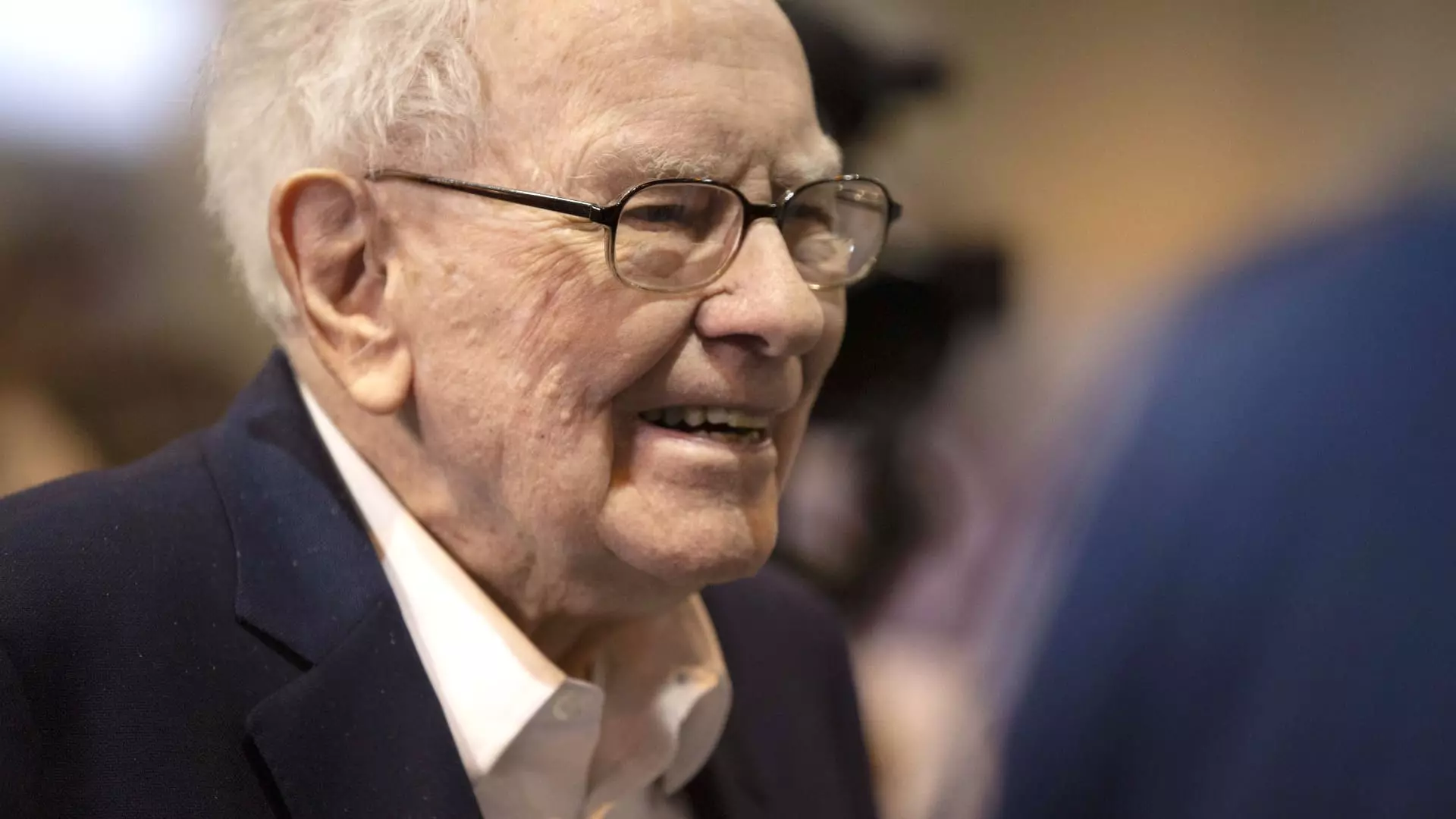Warren Buffett, often regarded as one of the most astute investors of our time, has recently captivated and puzzled the investment community with his unusual approach to portfolio management. As the CEO of Berkshire Hathaway, a company that has long been synonymous with savvy equity investments, Buffett’s reported shift towards a defensive financial posture raises myriad questions. His decisions, which include significant equity sales and an accumulation of a staggering cash reserve, indicate a recalibration that departs from his historically aggressive stance on stock ownership.
In the latest quarterly analysis, it was revealed that Buffett increased Berkshire Hathaway’s cash holdings to an impressive $334 billion, while concurrently selling off significant stock positions valued at over $134 billion. This trend marks the ninth consecutive quarter of net equity sales—a notable departure from the company’s traditional investment behavior. For a billionaire investor known for his persuasive buy-and-hold philosophy, this sudden pivot raises eyebrows.
Buffett, in his highly anticipated annual letter, attempted to clarify his rationale by reassuring stakeholders that despite the cash reserves, his commitment to equities remains steadfast. “Despite what some commentators currently view as an extraordinary cash position at Berkshire, the great majority of your money remains in equities,” he expressed. This assertion juxtaposes the growing dissatisfaction among shareholders and analysts who have been left searching for clarity regarding the inherent risk in Buffett’s decision-making process.
Investors have increasingly questioned Buffett’s decision to abstain from significant stock purchases amidst a robust bull market, particularly one that has seen the S&P 500 rise more than 20% consecutively for two years. The absence of buybacks during a time of increasing operational earnings suggests Buffett’s hesitance may be indicative of deeper market concerns. While many would consider the current economic environment favorable for stock investments, Buffett seems to approach it with caution.
The core of Buffett’s hesitance can be attributed to various factors, including market valuations in light of economic uncertainty and increased volatility stemming from rapid policy changes. In his annual letter, he hinted at the challenges of finding attractive opportunities, stating, “Often, nothing looks compelling; very infrequently we find ourselves knee-deep in opportunities.” This raises the question—have the market’s inflated price-to-earnings ratios left Buffett phasing out of stock accumulation?
Buffett reiterated that the strategic accumulation of cash and reduction of stock positions stems from a prudent long-term investment philosophy rather than a rejection of equities. He remains committed to investing in productive businesses which yield long-term growth rather than cash-equivalent assets. He underscored, “Berkshire will never prefer ownership of cash-equivalent assets over the ownership of good businesses.”
Furthermore, is it possible that this strategy aligns with an essential phase of succession planning? Speculations have emerged suggesting that Buffett’s tempered approach may position his chosen successor, Greg Abel, as the torchbearer for future investments. Abel is noted for his acumen in identifying investment opportunities, a trait Buffett appears to recognize and foster openly in his communications, making a case for continuity amid his eventual departure.
The protection of Berkshire’s substantial cash reserves without aggressive buying might not be merely a function of personal strategy; it could also reflect preparatory groundwork for the next chapter of Berkshire Hathaway under Abel’s stewardship. The subtle hints dropped in the letter about potential incremental investments, notably in Japanese trading companies, further clarify that while there may be a slowdown in substantial equity purchases, the company is not retreating from the market.
Concerns regarding the broader economy cannot be ignored. Increased scrutiny on stock valuations, economic slowdowns, and updates on interest rates will likely shape investment decisions in the near future. While Buffett’s retreat from traditional equity positions is perplexing, one must appreciate the complexity of navigating an unpredictable economic landscape, compounded by external pressures.
Warren Buffett’s conservative posture towards cash accumulation and diminished stock ownership may reflect a multifaceted strategy influenced as much by market realities as by his long-term vision for Berkshire Hathaway. In taking a measured approach, Buffett is not only securing the future of the conglomerate but also adhering to the guiding principle of prioritizing quality investments over expeditious decisions. Only time will reveal how this cautious approach shapes the future trajectory of one of the most esteemed investment firms in history.

